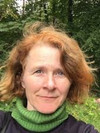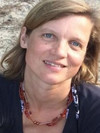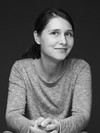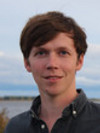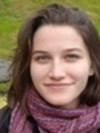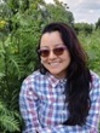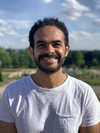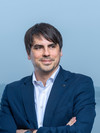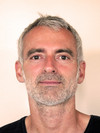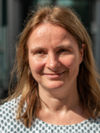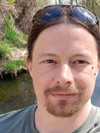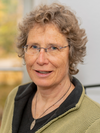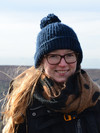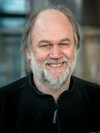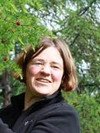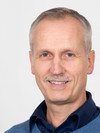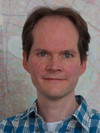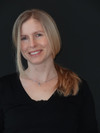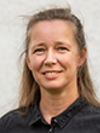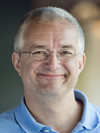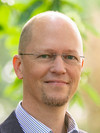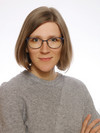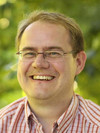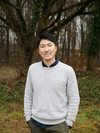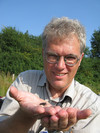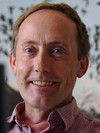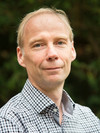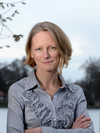People involved
Prof. Dr. Jana Eccard
Speaker
Animal Ecology
University of Potsdam
"In my group we use different ecological, life-history and behavioural tools to better understand the evolutionary adaptation of animals to their environment. We are specifically interested in animal behaviour and look at it regarding different aspects and scales. The topics we are researching range from fundamental research topics, like for example the connection between inter-individual differences and learning, coexistence, movement-mediated biodiversity research and the landscape of fear."
E-Mail: animal-ecologyuuni-potsdampde
CV
Prof. Dr. Anja Linstädter
Deputy Speaker
Biodiversity Research & Systematic Botany
University of Potsdam
"Our working group is interested in mechanisms maintaining biodiversity and how biodiversity is affected by land-use changes, climate change and other human influences, particularly in agricultural landscapes. We focus on the ecology of invasive plant species, on ecosystem functions, on plant-soil interactions and on evolutionary ecology of plant species in the face of climate change."
E-Mail: biodiversityuuni-potsdampde
CV
Prof. Dr. Damaris Zurell
Deputy Speaker
Ecology & Macroecology
University Potsdam
"I am a geoecologist and macroecologist studying biodiversity dynamics and change and the cross-scale processes that drive them. My research typically involves modeling and data analysis to understand niche and range limiting factors and predict how species and communities will respond to ongoing global change."
E-Mail:damaris.zurell@uni-potsdam.de
CV
Prof. Dr. Elias Ehrlich
Deputy Speaker
Quantitative Conservation Biology
University of Potsdam
"Elias Ehrlich has been Junior Professor of Quantitative Conservation Biology at the Institute of Biochemistry and Biology of the Faculty of Mathematics and Natural Sciences since December 2024. In his research, he investigates mechanisms for the conservation of biodiversity and approaches to the sustainable management of aquatic ecosystems."
E-Mail: elias.ehrlich1@uni-potsdam.de
CV
Dr. Coline Royaux
PostDoc IGBGChange
University of Potsdam
"My research focuses on studying the processes underlying the distribution of biological diversity from genes to communities in relation to biotic, abiotic and anthropogenic factors, primarily in freshwater zooplankton. I am also interested in investigating solutions to the challenges faced by the ecological sciences community regarding open science and the pereniallity of knowledge."
E-Mail: coline.royauxuuni-potsdampde
Dr. Lina Ojeda-Prieto
PostDoc IGBGChange
University of Potsdam
"As an experimental entomologist and ecologist, I study how individual-level variation drives cross-trophic interactions and influences ecosystem functioning, aiming to understand and predict ecological responses to global change."
E-Mail: lina.ojedauuni-potsdampde
Dr. Ahmed Abdelfattah
Microbiome Biotechnology
Leibniz Institute for Agricultural Engineering and Bioeconomy (ATB)
"I am focused on understanding how plant-associated microbes are transmitted between generations and how global change may influence their community composition. The main goals of Microbiome Management are to understanding the interlinked effects of the microbiome in circular bio economy; Developing microbiome-based products and microbiome management strategies; and establishing integrative, eco-evolutionary understanding of microbiomes for sustainable future."
E-Mail: aabdelfattahuatb-potsdampde
CV
Prof. Dr. Robert Arlinghaus
Integrative Recreational Fisheries Management
Leibniz Institute of Freshwater Ecology and Inland Fisheries (IGB) & Humboldt-Universität zu Berlin
"I study fish and fisheries mainly in inland waters and coastal environments. I am interested in fundamental understanding of fish behavior, ecology and evolution and the features and dynamics of social-ecological interactions of fish, aquatic systems and human exploiters. I am keen to apply scientific principles to conservation and management problems of fisheries and aquatic ecosystem management. I also like to shape practice in transdisciplinary settings with fisheries and conservation stakeholders."
E-Mail: robert.arlinghausuigb-berlinpde
CV
PD Dr. Niels Blaum
Plant Ecology & Nature Conservation
University of Potsdam
"My main research interest is on understanding the impacts of land use and climate change on all levels of biodiversity (diversity of species, structures and genes) including studies on population ecology and behaviour. I am a field ecologist and particularly fascinated to explore how the variability of animal movements, as a key process linking all levels of biodiversity, contribute to maintain and shape communities. My study organisms range from arthropods over reptiles to mammals."
E-Mail: blaumuuni-potsdampde
CV
Prof. Dr. Elke Dittmann
Microbiology
University of Potsdam
"I am intrigued by chemical mediators and their role in structuring microbial communities and host-microbe interactions. My focus is the investigation biosynthetic pathways of specialized compounds in cyanobacteria as well as their evolutionary diversification, biotechnological exploitation and spatial and temporal distribution in microbial communities."
E-Mail: edittuuni-potsdampde
CV
Prof. Dr. Bertrand Fournier
Landscape Ecology
University of Potsdam
"The aim of our research is to understand the mechanisms that drive the spatial and temporal patterns of biodiversity. We focus on how human activities alter ecological processes in anthropogenic landscapes across a broad range of scales and taxonomic groups."
Prof. Dr. Ursula Gaedke
Ecology & Ecosystem Modelling
University of Potsdam
"We investigate plankton communities and food webs in field, laboratory and model studies to contribute to ecological theory building and to the solution of pressing ecological problems such as the consequences of biodiversity loss. A core area of my research is the interplay between the dynamics of ecological systems and their functional diversity, which determines their adaptability to changing environmental conditions."
E-Mail: gaedkeuuni-potsdampde
CV
Dr. Lynn Govaert
Eco-Evolutionary Dynamics
Leibniz Institute of Freshwater Ecology and Inland Fisheries (IGB)
"I am an evolutionary ecologist. My goal is to understand how trait changes and trait variation affect community structure and functioning of ecosystems in time and space. My main research interest focuses on the quantification of absolute and relative contributions of ecological and evolutionary processes and how these shape communities and metacommunities in their response to environmental change."
E-Mail: lynn.govaertuigb-berlinpde
CV
Prof. Dr. Volker Grimm
Ecological Modelling
Helmholtz-Centre of Environmental Research (UFZ) & University of Potsdam
"I am interested in strategies and methods for making ecological modelling more coherent and efficient. The ultimate aim is to develop preditive models that provide mechanstic understanding of ecological systems and that are transparent and structurally realistic enough to support environmental decision making."
E-Mail: volker.grimmuufzpde
CV
Prof. Dr. Ulrike Herzschuh
Polar Terrestrial Environmental Systems
Helmholtz-Centre for Polar and Marine Research (AWI) & University of Potsdam
"Polar regions are some of the most sensitive and vulnerable regions on Earth. In particular, the long-term interactions between climate, ecosystems and humans in polar continental areas are still poorly understood. Therefore, my research group investigates past climate dynamics, high-latitude vegetation change, arctic lake system dynamics and biodiversity change in high latitudes."
E-Mail: Ulrike.Herzschuhuawipde
CV
Prof. Dr. Florian Jeltsch
Plant Ecology & Nature Conservation
University of Potsdam
"One of the driving questions of my academic career is how mechanisms at the level of single organisms scale up to populations, communities and biodiversity. In the last 30 years I addressed this question in a large number of different (mainly modelling but also empirical) projects covering plant, animal, community and landscape ecology. One important aspect of my work is the refinement and development of ecological theory and concepts as well as modelling strategies."
E-Mail: jeltschuuni-potsdampde
CV
Prof. Dr. Jonathan Jeschke
Ecological Novelty
Leibniz Institute of Freshwater Ecology and Inland Fisheries (IGB) & Freie Universität Berlin
"Ecological novelty is an umbrella term for unprecedented, human-mediated changes at different ecological levels, from organisms and populations to communities, ecosystems and landscapes. These direct and indirect effects of human action lead, for instance, to novel organisms and novel communities which we investigate in our group."
E-Mail: jonathan.jeschkeuigb-berlinpde
CV
Prof. Dr. Stephanie Kramer-Schadt
Ecological Dynamics
Leibniz Institute for Zoo- and Wildlife Research (IZW) & Technische Universität Berlin
„My research is focused on understanding wildlife population dynamics in space and time, and across gradients of human altered environments. I investigate how fitness consequences of processes acting at the individual level, such as host-pathogen interactions, shape population and community dynamics.”
E-Mail: krameruizw-berlinpde
CV
Prof. Dr. Ulrike Lucke
Complex Multimedia Application Architectures
University of Potsdam
"My research activities include institutional infrastructures for education, research and administration. I am especially interested in mobile and pervasive applications, E-Learning and -Science and interoperability in heterogeneous environments."
E-Mail: ulrike.luckeuuni-potsdampde
CV
Prof. Dr. Ralf Metzler
Theoretical Physics
University of Potsdam
"Our research focuses on non-equilibrium statistical physics, soft matter and theoretical biological physics, as well as physically motivated data science. Key topics include the theory and applications of normal and anomalous stochastic processes, gene regulation, crowding in biological cells, (bio)polymer physics, as well as Bayesian maximum likelihood and machine learning analyses."
E-Mail: rmetzleruuni-potsdampde
CV
Prof. Dr. Claas Nendel
Landscape & Ecosystem Modelling
Leibniz Centre for Agricultural Landscape Research (ZALF) & University of Potsdam
"I am working in agricultural research on applied integrated modelling of water, nitrogen and carbon dynamics, organic matter decomposition, crop growth, product quality, and farm economics in special crops (grapevine, vegetables) and major agricultural crops. My main focus is the carry-over effect within crop rotations and the consequences for yield and product quality."
E-Mail: nendeluzalfpde
CV
Dr. Viktoriia Radchuk
Ecological Dynamics
Leibniz Institute for Zoo- and Wildlife Research (IZW)
"I am a quantitative ecologist interested in wildlife responses to global change. I study mechanisms that allow animal populations, species and communities to cope with global change. My work lays at the intersection of population ecology, community ecology, disturbance ecology and conservation biology. I apply advanced statistical tools and simulation models to assess biological responses to global change with the ultimate goal of providing conservation advice for mitigating possible negative impacts."
E-Mail: radchukuizw-berlinpde
CV
Prof. Dr. Matthias Rillig
Plant & Mycorrhizal Ecology
Freie Universität Berlin
"Our research focus is on soil ecology and global change biology, with most people in the lab working on fungi. We work with arbuscular mycorrhizal fungi and also saprobic fungi. A current focus in the lab is on the
concurrent influence of many environmental drivers, and on the effects of microplastics."
E-Mail: rilliguzedat.fu-berlinpde
CV
Prof. Dr. Masahiro Ryo
Artificial Intelligence
Leibniz Centre of Agricultural Landscape Research (ZALF) & Brandenburg University of Technology Cottbus - Senftenberg
"I see myself in the face of the challenge as both 'theoretical ecologist' and 'data scientist'. As a theoretical ecologist, I look for basic rules about how dynamic systems work, which can direct us how we should study natural and ecological systems. As a data scientist, I discover key information from complex data, using machine learning tools."
E-Mail: Masahiro.Ryouzalfpde
CV
Prof. Dr. Ralph Tiedemann
Evolutionary Biology/ Systematic Zoology
University of Potsdam
"My working group is interested in Evolutionary Biology, Molecular Evolution, and Zoological Systematics. We apply various molecular genetic methods (single gene analysis, transcriptome analysis, ddRAD sequencing, qPCR, AFLP, microsatellite typing), morphometrics, genetic modelling as well as field research. We are also experienced in evolutionary research for applied purposes (conservation genetics, biodiversity assessment)."
E-Mail: tiedemanuuni-potsdampde
CV
PD Dr. Christian C. Voigt
Evolutionary Ecology
Leibniz Institute for Zoo- and Wildlife Research (IZW)
"I am mostly working on questions related to the movement ecology and conservation of bats with a special focus on migratory bats, light pollution and wind energy production. Ultimately, I am interested in transforming human-wildlife conflicts into coexistence. Therefore, besides studying wildlife species I also seeks to better understand the human dimensions of conflicts."
E-Mail: voigtuizw-berlinpde
CV
apl. Prof. Dr. Guntram Weithoff
Aquatic Ecology
University of Potsdam
"I am an aquatic ecologist and I am interested in how the environment influences individuals, populations and communities and how species respond to environmental changes. To study this, I am working with freshwater phytoplankton and zooplankton."
E-Mail: weithoffuuni-potsdampde
CV
Prof. Dr. Justyna Wolinska
Disease Evolutionary Ecology
Leibniz Institute of Freshwater Ecology and Inland Fisheries (IGB) & Freie Universität Berlin
"I study evolutionary and ecological processes mediated by parasitism in aquatic ecosystems. Parasites are ubiquitous and impose strong selection on their hosts to evolve resistance, while themselves being under strong selection to undermine host defenses. My research group aims to develop a better understanding of the interface between such host-parasite co-evolution and major ecological processes in the face of global environmental change."
E-Mail: wolinskauigb-berlinpde
CV

